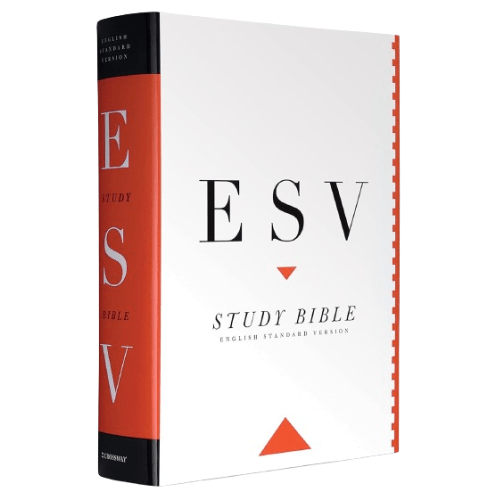Have you ever opened the Bible, ready to study, only to feel lost, distracted, or unmotivated? You’re not alone! Many of us face challenges in Bible study, especially as beginners. We may struggle with distractions, find certain passages difficult to understand, or lack the motivation to stay consistent. But studying God’s Word is essential for spiritual growth. It strengthens our faith, deepens our understanding, and draws us closer to Him.
Thankfully, overcoming these challenges is possible. With the right mindset and practical strategies, we can develop a meaningful and rewarding Bible study habit. In this guide, we’ll explore how to stay focused, understand difficult passages, and build motivation. We’ll also share effective study methods to help us apply what we learn.
Let’s dive in and discover how to overcome challenges in Bible study, so we can grow in wisdom and faith!
Overcoming Distractions in Bible Study
One of the biggest challenges in Bible study is staying focused. Distractions can pull our attention away, making it hard to connect with God’s Word. Thankfully, we can take simple steps to minimize distractions and make our study time more effective.
Identifying Common Distractions
Before we fix the problem, we need to recognize it. Phones, social media, background noise, and multitasking often disrupt our focus. Sometimes, even our own thoughts can distract us. When we know what pulls us away, we can take intentional steps to eliminate those interruptions.
Choosing the Right Study Environment
Where we study matters. A noisy, cluttered space makes it hard to concentrate. Choosing a quiet, comfortable place helps us focus on Scripture. If we can’t avoid noise, using headphones with calming instrumental music can help. Keeping our study area clean also removes unnecessary distractions.
Setting a Dedicated Bible Study Time
Life gets busy, but setting a consistent Bible study time makes it a priority. Early mornings, lunch breaks, or evenings—whatever works best, we should commit to it. When we treat Bible study like an important appointment, we are more likely to stay consistent.
Using Tools for Focus
Helpful tools can keep us engaged. A notebook for jotting down thoughts helps us process what we read. Bible study apps with highlighting and note-taking features make studying easier. Setting our phones to “Do Not Disturb” mode prevents unnecessary interruptions.
Prayer for Concentration
Most importantly, we should ask God for focus. A simple prayer before studying invites His presence and helps us resist distractions. When we ask for wisdom and concentration, He strengthens our minds to stay engaged.
By identifying distractions, creating a focused environment, and seeking God’s help, we can overcome challenges in Bible study. Let’s be intentional so we can grow in faith and understanding!
Understanding Difficult Passages
One of the most frustrating challenges in Bible study is encountering passages that seem confusing or difficult to interpret. Sometimes, the language feels unfamiliar. Other times, symbolism or cultural differences make understanding tricky. However, with the right approach, we can break down these passages and uncover their meaning.
Why Some Passages Are Hard to Understand
The Bible was written thousands of years ago in different languages and cultures. Because of this, some verses contain ancient expressions, idioms, or references that don’t make immediate sense to us. Symbolism is also common, especially in prophetic and poetic books. Without context, we might misinterpret what the passage is really saying.
The Importance of Reading in Context
Context is key to understanding Scripture. If we read a verse in isolation, we might miss its true meaning. Instead, we should consider the surrounding verses, the chapter, and even the entire book. Understanding the historical and cultural background also helps. For example, certain laws in the book of Leviticus make more sense when we realize they were given to Israel in a specific time and place.
Using Multiple Translations for Clarity
Some Bible translations use modern language, making difficult passages easier to grasp. Comparing different versions, like the NIV, ESV, and NLT, helps clarify meaning. If a verse seems unclear, reading it in another translation often provides insight.
Leveraging Study Aids
We don’t have to figure everything out alone. Study aids like commentaries, lexicons, and concordances help explain difficult words and phrases. A lexicon provides original Greek or Hebrew meanings, while a concordance helps us find related verses. Commentaries, written by biblical scholars, offer valuable insights into challenging texts.
Seeking Guidance from Experienced Believers
Sometimes, we need help from others. Discussing Scripture with a pastor, mentor, or Bible study group can bring clarity. Others may have studied the passage before and can provide helpful explanations. Asking questions and learning from those with more experience strengthens our understanding.
Difficult passages don’t have to discourage us. By reading in context, using translations, studying with helpful tools, and seeking guidance, we can overcome these challenges in Bible study. The more we dig into God’s Word, the more we grow in wisdom and faith!
Staying Motivated in Bible Study
One of the biggest challenges in Bible study is staying motivated. We start with excitement, but over time, distractions, busyness, or lack of understanding can cause us to lose interest. Thankfully, we can rekindle our passion for God’s Word by making Bible study more engaging and meaningful.
Setting Realistic Study Goals
Many of us try to do too much at once, which can lead to frustration. Instead of aiming to read entire books quickly, we should set small, achievable goals. For example, studying one chapter a day or focusing on a specific theme keeps us consistent without feeling overwhelmed. Progress, even in small steps, builds motivation over time.
Finding Personal Application in Scripture
The Bible isn’t just a history book—it speaks to our lives today. When we apply what we read, it becomes more meaningful. Asking, How does this passage apply to my life? or What is God teaching me here? helps us connect with Scripture personally. The more relevant the Bible feels, the more we’ll want to keep studying.
Making Bible Study Interactive
If Bible study feels like a chore, we might need a new approach. Journaling about what we read helps us reflect and remember key insights. Discussing Scripture with others brings new perspectives and deeper understanding. Bible apps with reading plans, quizzes, and devotionals also make studying more engaging. By using different methods, we can keep our study time fresh and exciting.
Connecting with a Bible Study Group
Studying alone can sometimes feel isolating. A Bible study group offers encouragement, accountability, and deeper discussions. Whether in person or online, being part of a group helps us stay committed. When we share insights and hear others’ perspectives, we grow even more. Fellowship strengthens our motivation to keep learning.
Praying for Spiritual Hunger
Sometimes, we struggle with motivation because we lack spiritual hunger. But we can ask God to give us a desire for His Word. A simple prayer like, Lord, help me love Your Word and seek You daily, can change our attitude. When we invite the Holy Spirit into our study time, He renews our passion and understanding.
By setting realistic goals, making study interactive, and seeking God’s help, we can overcome challenges in Bible study. The more we engage with Scripture, the more we will grow in faith and motivation!
The ESV Study Bible
The ESV Study Bible was designed to help us understand the Bible in a deeper way. Created by a diverse team of 95 leading Bible scholars and teachers, from 9 countries, nearly 20 denominations, and 50 seminaries, colleges, and universities.
Developing Effective Study Habits
One of the best ways to overcome challenges in Bible study is to develop strong study habits. When we have a structured approach, we stay consistent and engaged. A good study routine helps us absorb God’s Word deeply and apply it to our lives.
Creating a Structured Study Plan
Without a plan, Bible study can feel random and unorganized. Choosing a specific book, theme, or reading schedule keeps us on track. Setting aside a dedicated time each day makes studying a priority. Whether we study for 10 minutes or an hour, consistency is key.
Using the SOAP Bible Study Method
A simple and effective study method is the SOAP Bible Study Method:
- Scripture – Read a passage and write down a key verse.
- Observation – Note what stands out, who is involved, and what is happening.
- Application – Ask how the passage applies to our lives today.
- Prayer – Pray about what we’ve learned and ask for understanding.
This SOAP Bible Study method keeps us focused and helps us go deeper in our study.
Incorporating Memorization Techniques
Memorizing Scripture strengthens our faith and helps us recall God’s promises during tough times. Repeating verses aloud, writing them on index cards, or using Bible apps with memory features can make memorization easier. Singing verses or turning them into prayers also helps them stick in our minds.
Keeping a Study Journal
Writing down insights, questions, and reflections makes Bible study more personal. A journal helps us track what we’ve learned and see spiritual growth over time. When we look back, we can see how God has spoken to us through His Word.
By developing effective study habits, we can overcome challenges in Bible study and make learning God’s Word a lifelong journey. The more we practice, the more natural and enjoyable studying becomes!
Applying What You Learn
One of the greatest challenges in Bible study is moving beyond knowledge to real-life application. Reading Scripture is important, but transformation happens when we put it into practice. God’s Word is meant to shape our thoughts, decisions, and daily lives.
To apply Scripture, we should ask, How does this truth change my actions? For example, if we study forgiveness, we can take steps to forgive someone we’ve been holding resentment against. When we read about serving others, we can find ways to help those in need. Small, intentional actions help us live out God’s Word.
Another way to apply what we learn is by sharing it with others. Discussing Scripture with friends, family, or a Bible study group helps reinforce what we’ve studied. Teaching or encouraging someone with a verse makes it more personal and meaningful. Writing down key lessons in a journal or sharing insights on social media can also deepen our understanding.
The more we practice applying God’s Word, the more it becomes part of who we are. Overcoming challenges in Bible study isn’t just about understanding Scripture—it’s about letting it shape our lives. When we live out biblical truths, we experience real spiritual growth and draw closer to God.
Final Thoughts on Challenges in Bible Study
Overcoming challenges in Bible study takes patience, consistency, and the right approach. By removing distractions, understanding difficult passages, staying motivated, and applying what we learn, we can grow in our faith. Developing strong study habits, like using the SOAP Bible study method, makes studying more effective and engaging. If you’d like a step-by-step guide on SOAP, check out our Bible study method guide for deeper insights.
The key is consistency. Even small, daily efforts make a big difference over time. When we seek God’s Word with an open heart, He will give us wisdom and understanding.
Let’s pray: Lord, give us a passion for Your Word. Help us overcome distractions and challenges in Bible study. Give us wisdom to understand and strength to apply what we learn. In Jesus’ name, Amen.
Stay encouraged, stay committed, and let’s keep growing together in God’s truth!
Frequently Asked Questions (FAQs) – Challenges in Bible Study
1. Why do I struggle to stay focused during Bible study? Many of us face distractions from phones, noise, or wandering thoughts. Choosing a quiet space, setting a study time, and praying for focus can help.
2. What should I do when I don’t understand a passage? Reading in context, comparing multiple translations, and using study aids like commentaries and lexicons can provide clarity. Discussing with others also helps.
3. How can I stay motivated to study the Bible regularly? Setting small, realistic goals, applying what we learn, and using interactive methods like journaling or Bible apps can make study time engaging.
4. What’s the best Bible study method for beginners? The SOAP method (Scripture, Observation, Application, Prayer) is simple and effective. It helps break down passages and apply them to daily life.
5. How do I apply what I learn from the Bible? Practical application comes through action. Look for ways to live out biblical truths, share insights with others, and pray for guidance.





